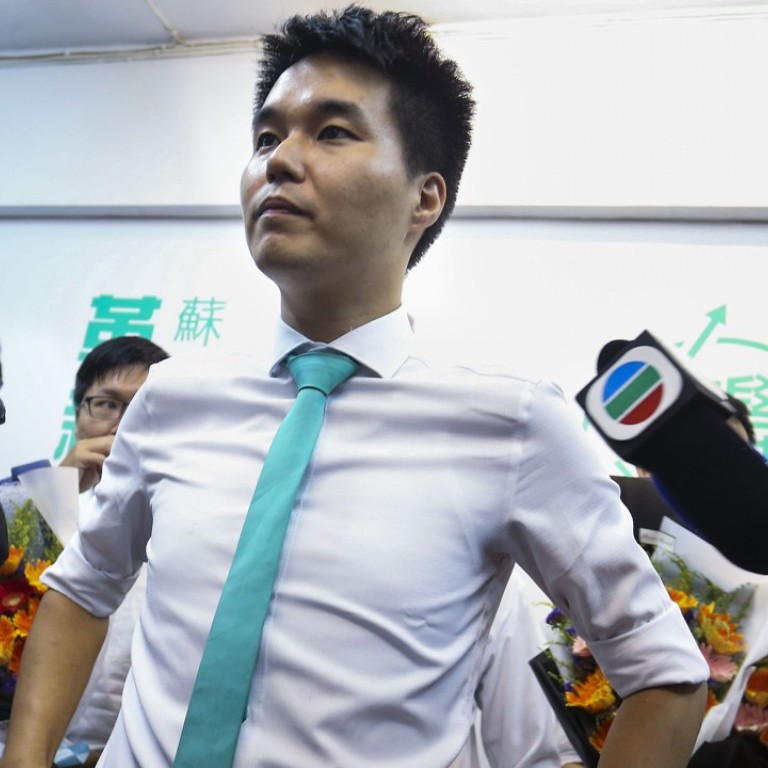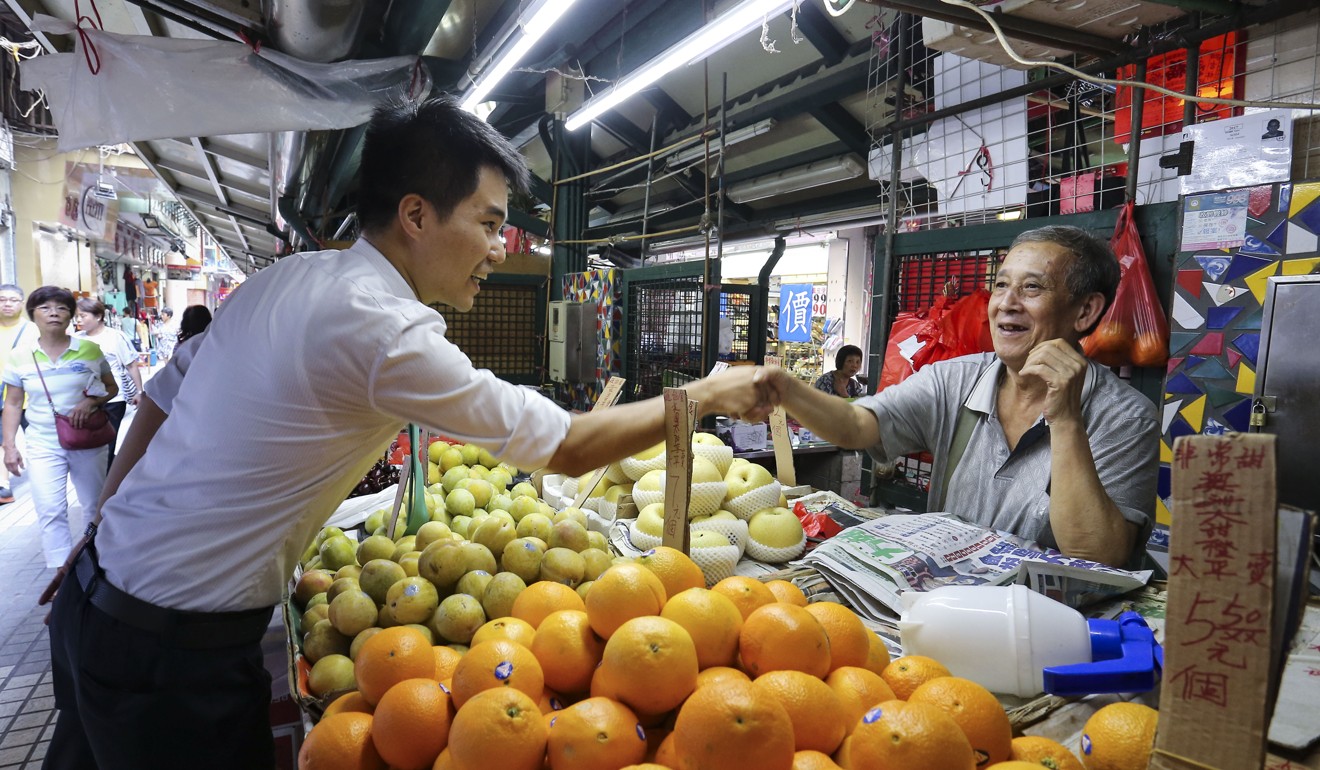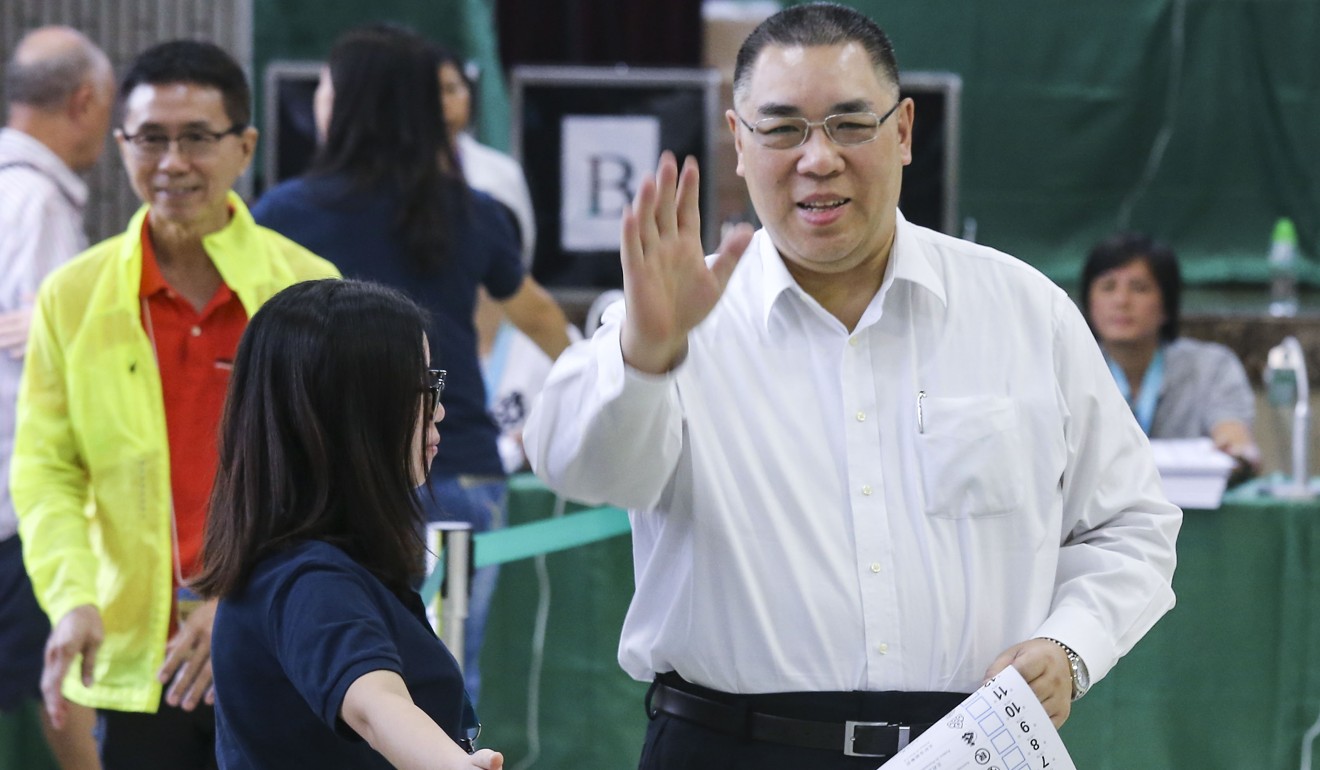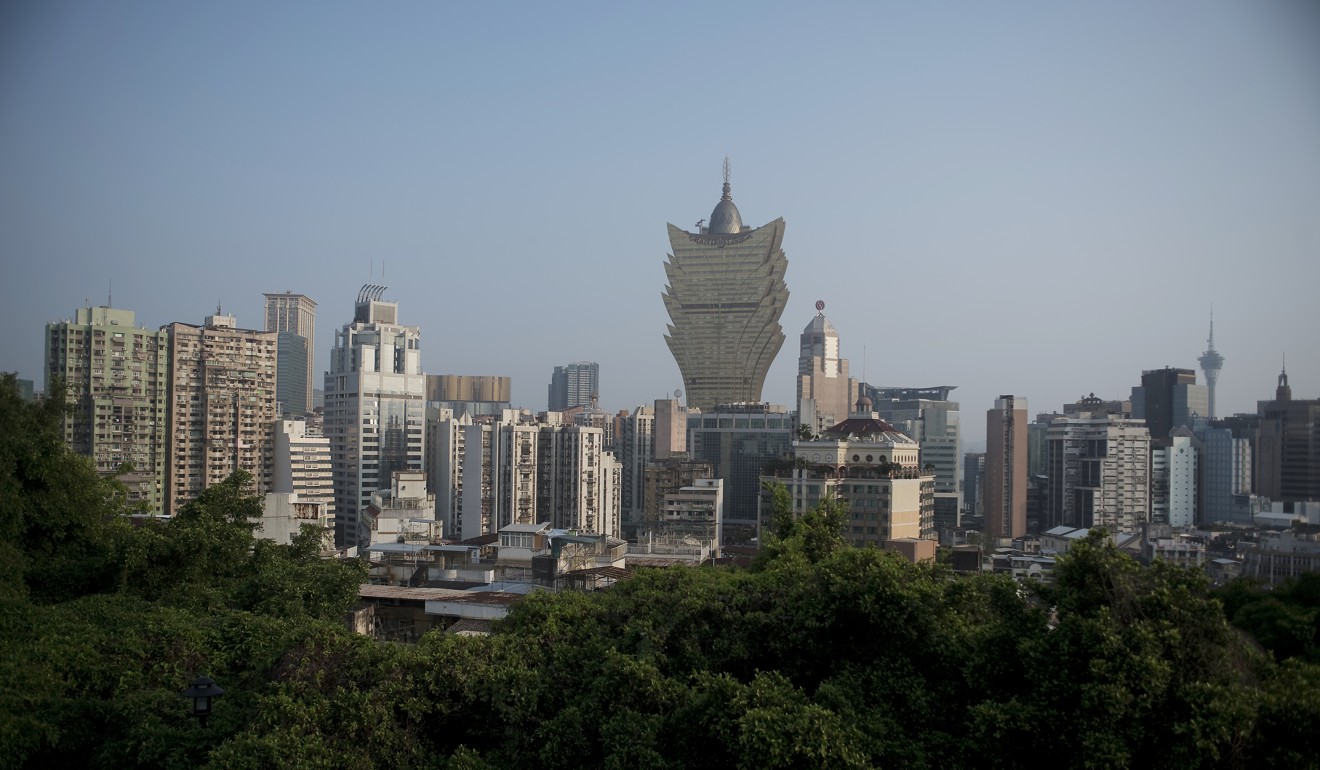
Macau’s youngest lawmaker Sulu Sou, suspended from office and found guilty over 2016 protest, hopes to retake his seat
Observers have compared him and his legal battles with those of disqualified lawmakers and pro-democracy activists in Hong Kong
“I am ready to return to my seat,” Sulu Sou Ka-hou, 26, who only served about 50 days as a lawmaker before being suspended, told the Post. “I hope to be able to continue pressing on issues like greater government transparency, civil rights, human rights and freedoms.”
Sou, 26, is still facing uncertainty as to whether he can retake his seat because there is a 20-day appeal period.

The fact they condemned us for an illegal protest is a bad sign for society
On Tuesday, Sou was found guilty and fined for being involved in an unauthorised protest, but he received no jail time. Another activist, Scott Chiang was ordered to pay a fine of 27,000 patacas (US$3,300).
Following this week’s verdict, both the prosecution and the two activists have 20 days to appeal the judgment.
“It’s a difficult choice for us,” Sou said. “Most supporters think we should not appeal because of the [Legislative Assembly] seat. But we do disagree with the decision … The fact they condemned us for an illegal protest is a bad sign for society. So we are still discussing.”

Asked about the court decision and an appeal, a spokesman for the Macau chief executive had no comment.
After the appeal deadline passes, Sou said he hoped that steps would be taken to enable his return to the Legislative Assembly before mid-August.
“I am confident that I can return before the summer holidays.”
Joshua Wong and other jailed Hong Kong student leaders see political careers halted
A teacher of civil education at a secondary school in Macau for two years, Sou said he planned to continue pursuing his electoral agenda. It includes enhancing the Legislative Assembly and the government’s transparency as well as focusing on education, housing, land and the environment.
Leung said the Macau government could decide to follow Hong Kong officials’ approach and file an appeal, posing further obstacles to Sou’s return. But that would depend on Beijing’s opinion, he believed.
Joshua Wong wins appeal against jail term over protest in run-up to Occupy
“Either they think that one young person in the [Legislative] Assembly will be no problem or they can’t stand it,” Leung said, referring to the central government’s liaison office in Macau. “They feel that the sort of social actions organised by the New Macau Association disturb the harmony of society … They are very sensitive about this and they worry that the young people will learn from them.”
The liaison office in Macau plays a similar role to its counterpart in Hong Kong, serving as a spokesman for the central government and overseeing several regional matters.
Many have raised increasing concerns that Beijing is encroaching on the autonomy of both cities. However, the former Portuguese enclave has been less vocal than the former British colony. Sou said the two cities had a “different history, culture, economy and political goals”.


